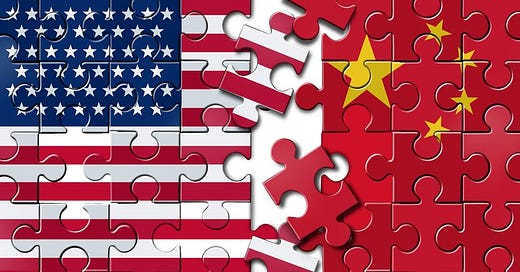PREAMBLE
“When the world’s most powerful country abandons its principles and loses any sense of morality, it becomes exceedingly dangerous and may inflict great harm upon the world."
This is the second part of Contemporary American Review’s conversation with Professor Wang Jisi. If you haven’t read Part One, you can find it here.
Key Points
In recent years, the US has increasingly prioritised its own interests, often at the expense of international rules and the concerns of other countries.
Under Trump, strategic competition with China is set to focus even more on trade, finance and technology, and less on human rights, ideology or traditional security concerns.
Nonetheless, he will make sure to leverage ideological, values-based and sovereignty-related issues as bargaining tools against China.
He is unlikely to abandon the US’s One-China policy, continuing military support for Taipei without backing independence.
Although Trump shows little interest in the systemic dimension of US–China rivalry, America’s entrenched bipartisan "Cold War mindset" towards China leaves little room for a significant shift in strategic framing.
• Wang: “At this stage, there is little value in the Chinese side continuing to argue with American officials and scholars over China’s strategic intentions.”
A complete US-China decoupling remains extremely improbable, as a certain level of mutual interdependence between the two countries is bound to persist.
Trump's objective of “Making America Great Again” implies weakening China—an aim fundamentally at odds with Beijing’s goal of national rejuvenation.
Yet his interest in “making deals” offers China “tactical opportunities” and room for cooperation beyond trade and technology—particularly in the security domain. Dialogue remains key to alleviating tensions.
Today, scholars and analysts on both sides are increasingly wary of visiting each other’s countries, concerned about personal safety and their ability to exchange freely.
The relaxation of visa policies is not enough—think tank and scholarly exchanges require broader institutional and political support.



